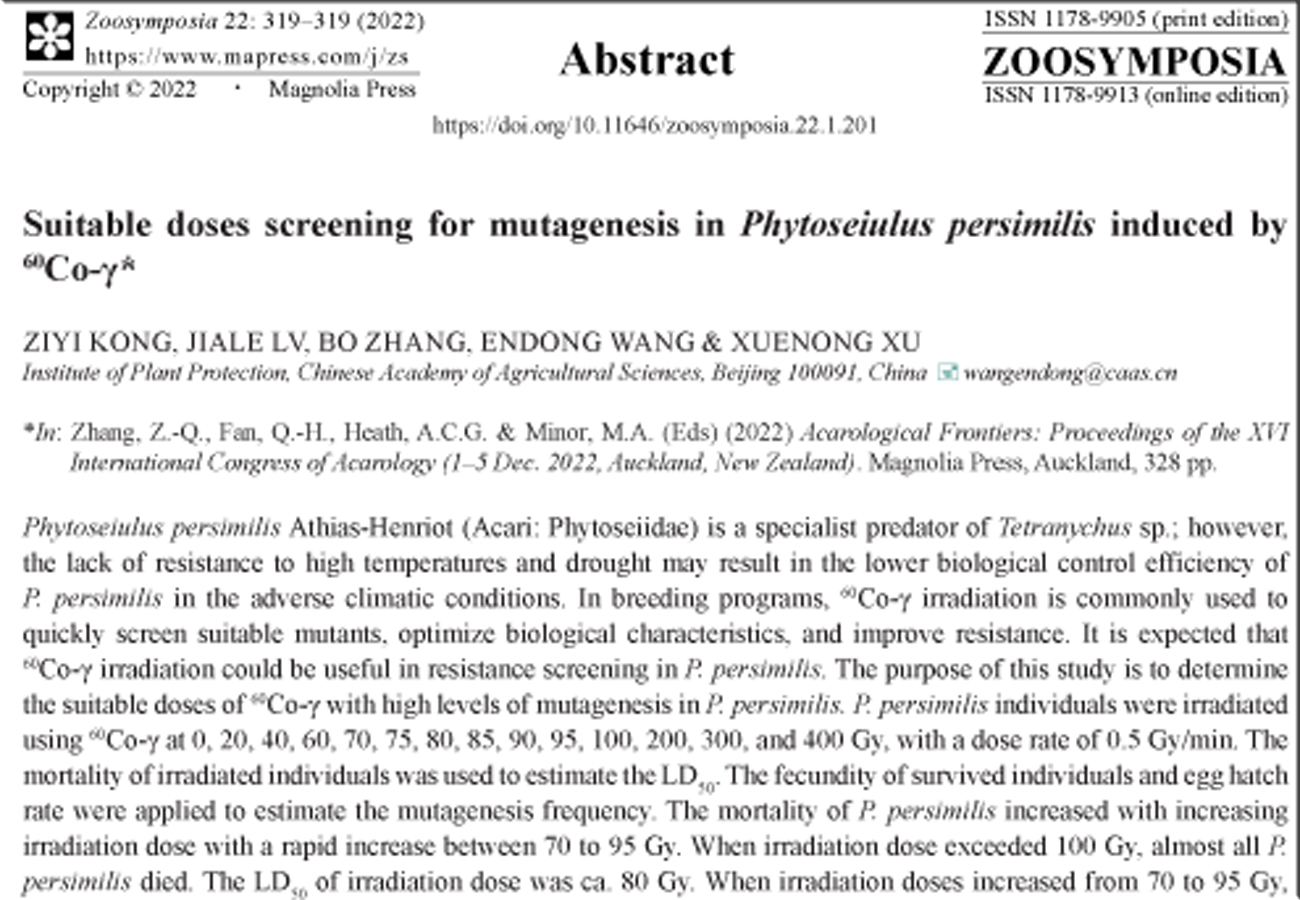Abstract
Phytoseiulus persimilis Athias-Henriot (Acari: Phytoseiidae) is a specialist predator of Tetranychus sp.; however, the lack of resistance to high temperatures and drought may result in the lower biological control efficiency of P. persimilis in the adverse climatic conditions. In breeding programs, 60Co-γ irradiation is commonly used to quickly screen suitable mutants, optimize biological characteristics, and improve resistance. It is expected that 60Co-γ irradiation could be useful in resistance screening in P. persimilis. The purpose of this study is to determine the suitable doses of 60Co-γ with high levels of mutagenesis in P. persimilis. P. persimilis individuals were irradiated using 60Co-γ at 0, 20, 40, 60, 70, 75, 80, 85, 90, 95, 100, 200, 300, and 400 Gy, with a dose rate of 0.5 Gy/min. The mortality of irradiated individuals was used to estimate the LD50. The fecundity of survived individuals and egg hatch rate were applied to estimate the mutagenesis frequency. The mortality of P. persimilis increased with increasing irradiation dose with a rapid increase between 70 to 95 Gy. When irradiation dose exceeded 100 Gy, almost all P. persimilis died. The LD50 of irradiation dose was ca. 80 Gy. When irradiation doses increased from 70 to 95 Gy, sterility rate increased from 5% to 20%, fecundity decreased from 97% to 80%, and egg hatch rate decreased from 98% to 60%. We suggest that the appropriate irradiation doses of 60Co-γ inducing higher P. persimilis mutagenesis were between 70 Gy and 95 Gy. Results of this study allow future large-scale screening for resistant strains of P. persimilis.
References
-

